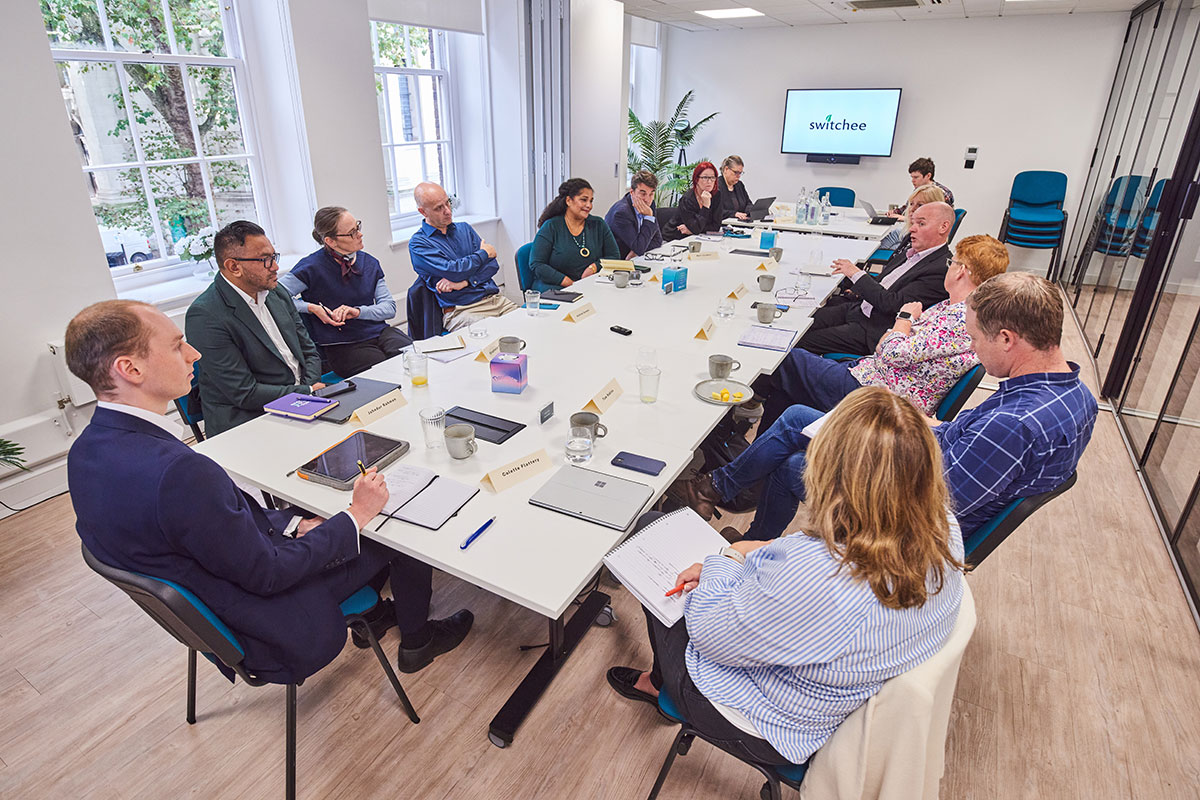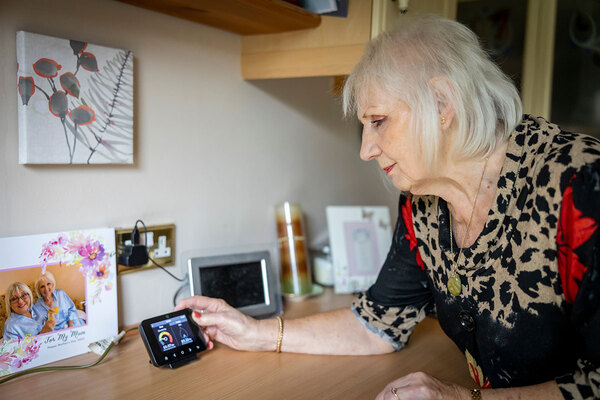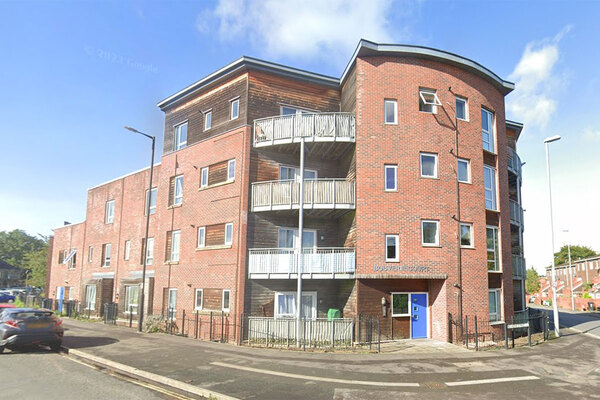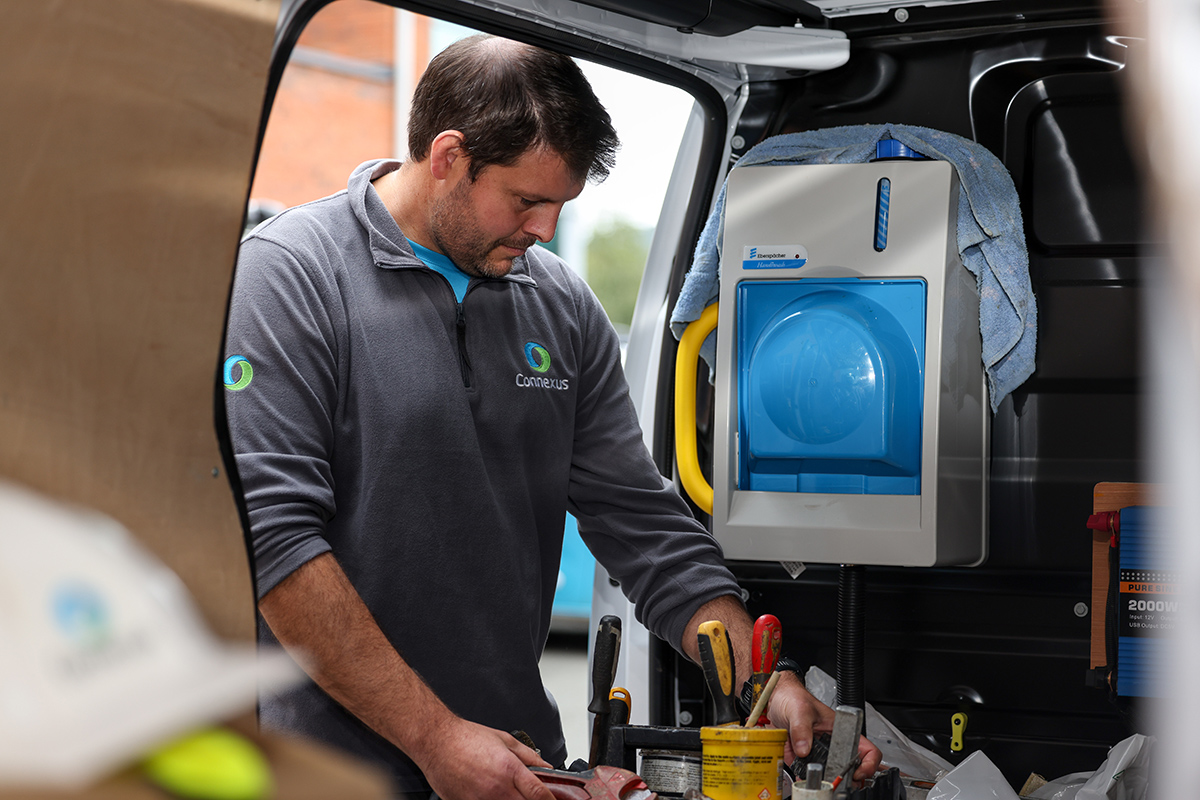How can social landlords use data to tackle fuel poverty?
As we enter winter and fuel bills spike, half of social tenants cannot afford to heat their homes, but identifying who those tenants are remains a challenge. Here, sector leaders discuss how better use of data could fight energy poverty. Photography by Simon Brandon
In association with:
![]()
More than half of social tenants (56%) are going without heating to save money thanks to spiralling energy bills and the cost of living crisis. That is according to the latest tenant data gathered by housing association LiveWest, which houses tenants across the west of England.
The figure comes from the association’s Slice of Life report, which surveyed tenants to understand the challenges they face around poverty, health and quality of life. When it was shared by Suzanne Brown, the landlord’s executive director of operations, to start our roundtable discussion – in association with smart technology provider Switchee – it elicited a series of knowing nods from her fellow panellists. The problem is one they all recognise, but could using data more effectively help to find a shared answer?
Matt Corbett, director at L&Q Foundation, says his organisation has its own statistics illustrating the worrying scale of the problem. “When we surveyed our residents a couple of years ago, almost 40% said they were having to choose between spending money on energy and bills or on food.”
And Cathy Gallagher, one of three welfare benefits advisors at Essex-based housing association CHP, says she and her colleagues are experiencing huge demand for their services. It is not just fuel poverty that falls on her desk; Department for Work and Pensions admin backlogs mean many tenants are going without a full income for months, which can push a family into crisis.
“Rather than just doing benefits, we’re providing more support, because form-filling and waiting for someone to get a benefit takes months. We do food vouchers, fuel vouchers and we’re trying to talk to people’s energy providers,” she explains. Working through how best to help someone takes time. “I could spend a whole day supporting one person. They can’t survive. They can’t eat. They can’t heat their property up,” she says.

Our roundtable is taking place a stone’s throw from parliament where, just the day before, MPs debated renewable energy and the provisions of the bill designed to create Great British Energy. Meanwhile, fuel poverty grows, but we still know too little about who is affected.
Liz Bisset is a member of the Committee on Fuel Poverty, an advisory group to the government. She says “there are global figures on who is fuel poor”, but “knowledge about which households are affected is much less good… If you are going to have support programmes and want to target fuel-poor households, [there is a question of] how do you know who they are?”
Better quality data could help solve the problem, but where could it come from? Energy companies are cited as an important possible source of information – with many being actively pursued by housing leaders.
Andrew Cooper, head of partnerships at Sovereign Network Group, says his housing association has joined a collaboration network that includes several utility providers. “It’s really been helpful for us to have been able to have those discussions and work with the energy companies.” He believes the companies “are really trying to understand customer vulnerability”.
“But I think one of the challenges is how they share that data, and how they can identify who’s a social housing tenant and who is their landlord and then share data with the landlord.”
The sensitivity of the data gathered about private households is one of the stumbling blocks – as is the lack of agreement on when is the right time to offer help, according to Ms Bisset. “But there are some [issues] that need to be overcome. One is the definition of ‘vulnerability’, because there’s no universal definition. The other is that research has highlighted concern among customers about what will happen to their data and [whether] it will be sufficiently confidential.”
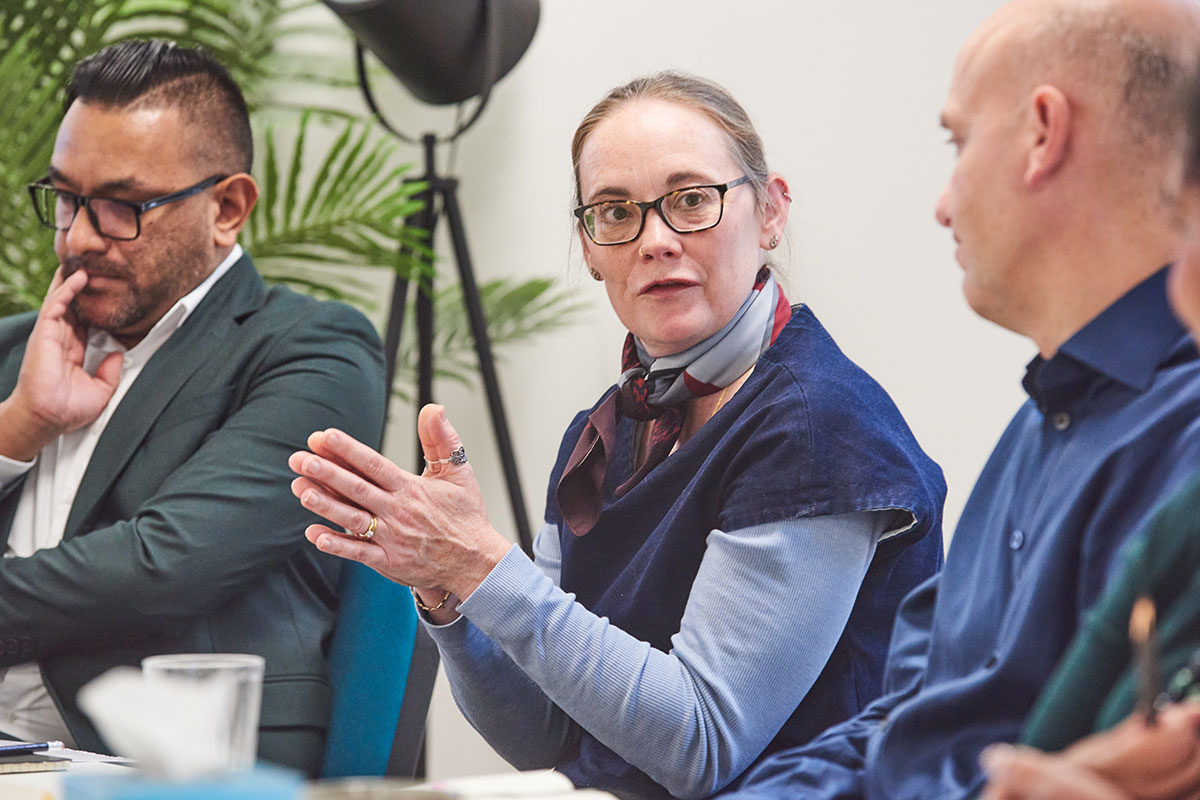
Colette Flattery began her role as Home Group’s director of customer experience six months ago, returning to the social housing sector after a spell working for one of the country’s largest energy companies. She agrees data sharing can be difficult, but says there may be ways to make it easier. “I’m wondering if there could be an opt-in of: would you be willing for us to talk to organisations that might help you [with fuel poverty]? And would there also be an opening to add an additional question: what kind of property you’re in – is it private rented, is it social housing, are you a homeowner? – and then doing some signposting if the customers consent?”
As chief executive of Groundwork UK, a charitable organisation that seeks to support communities to become greener and healthier, Graham Duxbury says he and colleagues encounter the practical implications of varying definitions of vulnerability. “One of the things that always strikes me, as a third-sector provider of services in this space, is that there are a wide range of programmes and money that can come down from energy companies to support engagement [with residents] – whether it’s ECO [the Energy Company Obligation, insulation work funded by energy companies], Warm Home Discount [a one-off £150 reduction on electricity bills], or redress payments. But it’s all really piecemeal and all of the eligibility criteria are different. So, effectively, you’re being paid as a charity to go and knock on doors and find people that fit this eligibility in order to do a [specific] piece of work.”
His appeal for a more joined-up approach is one that resonates with all those at the table. As Sovereign’s Mr Cooper puts it: “If someone’s struggling to pay their rent, then it’s likely that they’re not paying their electrical bills, their gas bills… I think there’s something about how we use our own data about our customers and their vulnerabilities, and then tying that together with the asset types we’ve got: the properties.”
Poorly rated
In England, households are considered fuel poor if the property has an Energy Performance Certificate (EPC) rating below Band C, alongside an income that is below the poverty line. But there are concerns about this metric.
“The inconvenient truth is that there is no correlation between an EPC score and the lived experience of a tenant,” argues Tom Robins, chief executive of Switchee. “And that’s pretty painful, because the EPC unlocks so much access to funding and other support.”
Mr Duxbury says there cannot helpfully be one proxy measure for fuel poverty. “People live complicated lives, and everybody’s got different circumstances.”
But the EPC – while imperfect – remains one of the few useful pieces of data the sector has. Stephanie Noyce, head of money and digital at Clarion Futures, says that so many people are worried about fuel bills that “if we pick up the phone and go through residents alphabetically, we’re going to get a one in two hit rate of somebody who’s in fuel poverty”.
“But combining that with EPC, for all its inaccuracies, helps us hone that to a slightly smaller group. Then we can put vulnerability data over the top and it refines it even more. It’s not perfect, but it’s more accurate than just going alphabetically down the list of every tenant.”
She hopes that, in the longer term, smart devices and the Internet of Things will enable landlords to refine such approaches further still. But the challenge is that action is needed in the short term. “We need to keep [the need for immediate support] at the forefront, while doing those [longer-term] things as well,” she says.
A further complication is that some of those longer-term solutions are likely to be disruptive. The likes of replacing outdated boiler systems, adding insulation to a home and changing the windows can improve energy efficiency – and reduce carbon emissions – but aren’t necessarily attractive to residents.
Jahedur Rahman, operational director for housing service and building safety at the London Borough of Haringey, speaks of “significant pushback” from residents on such work. “We were of the view that most tenants would welcome this work, but we’re finding tenants are pushing back purely based on the disruption. We were surprised that we initially had about 50 households saying no to decarbonisation work.”
It might be because the link between decarbonisation and lower fuel bills is not straightforward. Reliable data on achievable savings is tricky to come by. “We’ve struggled to quantify what that monetary saving will look like. So while we’ve said you’ll move from an EPC D building to an EPC B or an A, we’ve not been able to articulate what that saving will look like for that tenant.”

The need for social landlords to have more data and more expert conversations with residents about fuel poverty – and the possible ability of decarbonisation to address it – is a key thread of the discussion.
Georgina Sommerville, director of Green Rose CIC, which is focused on making homes in Lancashire greener and warmer, has recently been working with a housing association on improvement projects. It’s been a convoluted process, she explains.
“They’ve just done a large heat pump installation, which is great, but the installers [were expected to explain] how to use the heat pump to the tenants. Now the tenants don’t know how to use it, and their electricity bills are sky high. There really needs to be an education programme and a customer journey around this [sort of work]. You can’t just put it in and leave it.”
Mr Duxbury also stresses the value of better conversations with customers, not least for gaining more data – including through smart devices. “That monitoring is really interesting, if you can overcome the innate suspicion that people have been spied upon in their homes. Trying to get these measures into people’s homes is difficult in the first place sometimes. So there’s something for me about the mantra of every contact counts, and making sure that anybody who is visiting a home, for whatever reason, is able to feed into the intelligence and insight that we’ve got about the way people are living and their individual circumstances.”
While questions remain over how best to gain accurate data on fuel poverty, the roundtable concludes with an agreement that doing so is crucial.
As Ms Brown puts it: “The work we’re all doing in trying to intervene is fantastic, but we will just be addressing a very small proportion of the people that are actually in fuel poverty. We’re just really the tip of the iceberg of what is really there.”
Participants
James Riding (chair)
Chief reporter, Inside Housing
Liz Bisset
Member, Committee on Fuel Poverty
Suzanne Brown
Executive director of operations, LiveWest
Andrew Cooper
Head of partnerships, Sovereign Network Group
Matt Corbett
Director, L&Q Foundation
Graham Duxbury
Chief executive, Groundwork UK
Colette Flattery
Director of customer experience,
Home Group
Cathy Gallagher
Welfare benefits advisor, CHP
Stephanie Noyce
Head of money and digital, Clarion Futures
Jahedur Rahman
Operational director – housing service and building safety, London Borough of Haringey
Tom Robins
Chief executive, Switchee
Georgina Sommerville
Director, Green Rose CIC
Recent content in association with Switchee
How can social landlords use data to tackle fuel poverty?
As we enter winter and fuel bills spike, half of social tenants cannot afford to heat their homes, but identifying who those tenants are remains a challenge. Here, sector leaders discuss how better use of data could fight energy poverty
UK fuel poverty: a cool summer affects results
In the fourth Housing Fuel Poverty Index update of 2024, Inside Housing looks at the numbers reported by Switchee’s smart thermostats to help track fuel poverty across the UK
CPD webinar on demand: how can social landlords assess whether retrofit is delivering intended performance improvements?
As part of Inside Housing’s CPD offering, watch the full webinar and earn CPD minutes
What do the latest fuel poverty stats tell us?
In the third Housing Fuel Poverty Index update of 2024, Inside Housing looks at the numbers reported by Switchee’s smart thermostats to help track fuel poverty across the UK
CPD module: how to approach decarbonisation policy and strategies
The policy environment on decarbonisation and retrofit is evolving, so how can social landlords continue to build strategies to meet net zero? Richard Ellis, director of sustainability at Peabody, explains in this CPD module
What will Awaab’s Law mean for landlords and residents?
An Inside Housing roundtable, in association with Switchee, discusses how incoming legislation will affect how landlords approach repairs and maintenance in their homes
Using data to deliver better services
How are landlords collecting data and using it to make decisions about asset management and meeting residents’ needs? An Inside Housing survey, with data analytics firm Switchee, finds out
Is fuel poverty on the decline?
The latest data from smart thermostat provider Switchee suggests that the fuel poverty crisis may be starting to ease. Inside Housing analyses the figures
The numbers behind fuel poverty in the UK
Switchee’s new model shows the number of social households underheating their homes across the UK in real time, during 2022 and 2023. Inside Housing looks into the figures
How can landlords help residents to save on energy bills?
Inside Housing speaks to Emma Bitting at Switchee to find out what residents can do to ensure their homes are warm, and how they can save money on bills
How landlords are using data to tackle fuel poverty
An Inside Housing roundtable, in association with Switchee, discusses how landlords can analyse data to ensure they are helping residents who are struggling with energy costs
Internet of Things devices start to make a difference
A national network of vetted installers means the industry can collaborate to provide landlords with invaluable insights, says Philip Taylor of Internet of Things device provider Switchee
Choosing smart data and tech can help landlords achieve Better Social Housing Review goals
Technology can help landlords in terms of their business and regulatory compliance, as well as improving residents’ quality of life and bringing down bills, explains Tom Robins of tech firm Switchee
